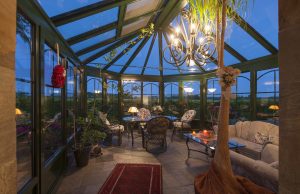
Heating bills are one of the most expensive overheads that a business can face. Often these can be difficult to manage, especially in the winter months.
It is common practice for property owners to put in place measures to reduce the next quarter’s overheads. And while it might seem obvious to turn off the lights and shut down your computer at the end of a long day, you’re probably missing out on key opportunities to save money on utilities.
Specifically, there are many things that you can do as a business owner to save money on your heating bill, and we’ve compiled some of them for this article.
Compare Prices With Utility Companies
Get an estimate from your utility company before doing any major renovations. This is important because depending on what type of construction you’re planning on having done, it may require more energy than previously needed or expected.
For example, if you’re planning to have insulation installed in the attic area then it will require more heat to keep up with the desired temperature; also think about installing new windows which will reduce energy usage substantially. Doing these types of property improvements during warmer months might not seem like such a bad idea anymore.
Consider Air Curtains & Over Door Heaters
Air curtains and over door heaters are an excellent way to provide warmth into your business space. Perfect for retail industries, office spaces or even home use, they provide both cold and warm air so you can be comfortable whether it’s hot or freezing outside!
It is also important to understand the differences between both of these technologies.
The door heater and the air curtain are both similar in that they produce a stream of heated or cooled air directed downwards towards your feet. The air stream is what determines the difference in these two heaters. It’s all about how fast it goes out, and an over door heater has slower airflow than an opening such as an air curtain for example.
The implications of this are that there will be less coverage area with over door heating but more volumetric output per unit time on high fan settings – so you may want to turn up your thermostat!
Insulate Your Building
Insulation is a great (and cheap) way to cut down on how much gas you use. Depending what type of building your business is in, there could be potential for insulation that saves money and time at the same time.
The insulation may have been old when you first moved in or it might be a new addition, but either way there are ways to address the problem. Make sure your property is insulated and replace any bad materials before they waste too much of that heat.
If you’re not going to insulate your commercial property, make sure that there are no gaps in the windows or door and check electrical fittings for leaks. You can use draught-proofing with weather stripping around doors and other openings if necessary!
Working in a well-insulated environment keeps the heat inside, so you don’t have to use as much energy.
Keep Your Thermostat Low
So, you’re looking to save on your heating bill but don’t want the unfortunate side effect of having an uncomfortable work environment?
The good news is that just reducing the temperature by 1° can cut down a lot in costs and keep people happy.
Yes, it’s such a small and obvious change but collectively, it can have a significant impact on cutting down your heating bills. If you’re interested in learning more, check out the Department of Energy’s Guidelines on Thermostats.
Quickfire Tips To Save More Energy
In addition to what we’ve mentioned, here’s a few more tips:
- Close off unused rooms and doors to reduce heat loss from these areas;
- Turn down the temperature in your office thermostat by 1 degree for every 10 degrees outside;
- Change or clean out old filters regularly to keep heating equipment running efficiently;
- Use natural light during the day so that lights don’t need to be turned on as often at night if it’s cold enough outdoors;
- Consider using radiant floor heating which is more efficient than other types of systems because it heats objects instead of blowing hot air around like an overhead
Wrap Up
We hope that this blog post has been helpful in guiding you to a decision about how to keep your business comfortable while saving on energy costs. Ultimately, it’s part of a business owner’s due diligence when conducting and operating their business.
Let us know if you have any questions or feedback below, and we’ll be happy to help! Thanks for reading.













